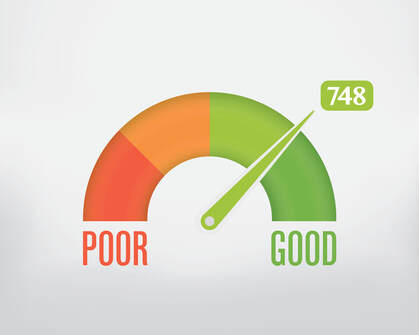 People are having to make tough financial choices today, but many don’t have to wreck their credit scores if they know how the system works. With the same amount of money, you can make decisions that kill your credit score or ones that keep your score – or at least give you the ability to rebuild your score quickly later. Most people have wrong or little information about how the system works, and that’s a big reason scores go down when difficult decisions are made during a recession. There are three common misconceptions that needlessly lower credit scores. Misconception #1: Paying late didn’t hurting my credit since I’m caught up now.
Recent late payments are the credit score killers. It’s great that you caught up but it doesn’t change the fact that you paid late. Anything other than ‘paid as agreed’ on accounts on your credit report hurts your score.” Misconception #2: Dollar Amounts Matter in Credit Scores. An example of bad credit score advice here is “pay the highest bill first.” Dollar amounts don’t matter in FICO scoring; ratios and recency do. The effect on your score is the same for a $1 late payment as a $1,000 late payment. The fewer late payments on your credit report, the higher your score – regardless of their dollar amounts. A consumer should try to pay all their bills on time, every time. However, if you must pay late and want to avoid damage to your score, pay the accounts that report to credit bureaus first. You can find this information by getting a copy of your credit report. Misconception #3: Closing Credit Card Accounts Helps Your Score. If you cancel a card, you may have just thrown away your chance to increase your score by continuing to build on years of positive credit. Very long term positive account history can really boost your score. It’s best for your score to keep cards open and active, using them for small purchases. Next best is to just keep them open so you can build your score back up quickly by using them later. Don’t Make a Bad Situation Worse. In tough economic times, people often buy more on credit than they usually would. The amount they pay in interest on these purchases is largely determined by their credit scores. Poor decisions that lower scores combined with an already tight budget can be very costly, making money problems worse than they have to be. People need to try to get through these tough times with as little financial damage as possible. This is best for them, for lenders and for our economy. Lower credit scores may be unavoidable for some, and credit scores are not the only factor to consider. However, good credit is an important part of financial security and must be considered when making the best long-term decisions. Having the right information is necessary to make good choices – now more than ever. This information is provided with the understanding that the association is not engaged in rendering specific legal, accounting, or other professional services. If specific expert assistance is required, the services of a competent, professional person should be sought. Provided as a public service by the Pennsylvania Association of Community Bankers. Comments are closed.
|
AuthorWrite something about yourself. No need to be fancy, just an overview. Archives
December 2017
Categories
All
|
|
Pennsylvania Association of Community Bankers
800 N. 3rd Street, Suite 304 Harrisburg, PA 17102 Phone: (717) 231-7447 [email protected] | sitemap (C) All Rights Reserved Our Privacy Policy Our Copyright Policy |
"To empower community banks to make positive impact within the communities they serve."
|
